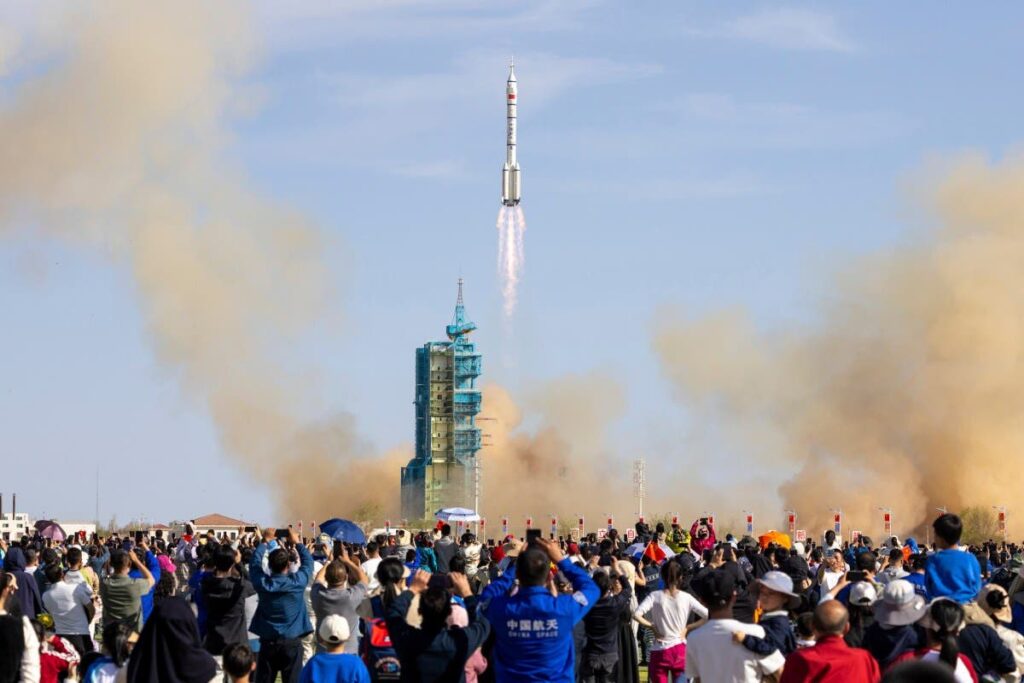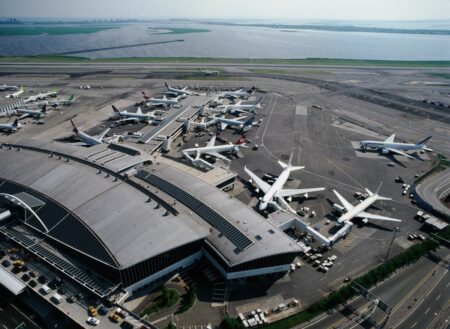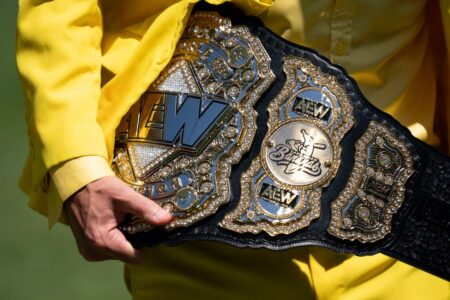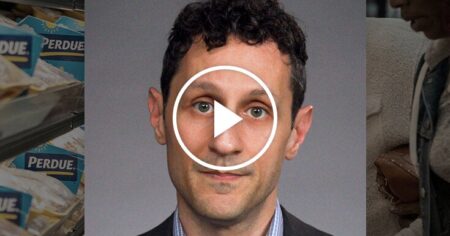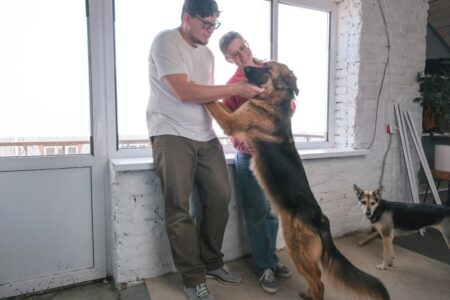The crew of China’s Shenzhou-20 mission have had to delay their return to Earth after concerns their spacecraft had been struck by space debris, China’s Manned Space Agency (CMSA) said Wednesday.
Newsweek reached out to the CMSA by email with a request for comment.
Why It Matters
The incident highlights the risks posed by an increasingly crowded low orbit. Traveling at speeds of up to five miles per second, or roughly eight kilometers per second, even tiny fragments of debris can severely damage space stations, crewed vehicles, and critical communication or defense satellites.
These risks have prompted the United States, China, and other spacefaring nations to develop advanced systems for tracking, avoiding, and potentially removing orbital debris.
In 2021, NASA astronauts were forced to cancel a spacewalk at the last minute after an 11-foot-wide fragment of a Russian rocket stage was forecast to pass dangerously close to the International Space Station.
What To Know
The CMSA said it had begun an impact assessment on the Shenzhou-20 to ensure the safety of its taikonauts—as Chinese astronauts are known—state media reported. The spacecraft had been scheduled to return to Earth on Wednesday.
The agency did not specify the location or extent of the damage.
The Shenzhou-20 launched from the Jiuquan Satellite Launch Center in Inner Mongolia on April 25 for a six-month mission to China’s permanent space station, the Tiangong.
It was the sixth three-person crewed mission to the Tiangong. During their stay, the astronauts conducted various scientific experiments and added two of a planned 23 experimental modules to the station.
What People Are Saying
Pang Zhihao, a Beijing-based space analyst and former senior engineer at the China Academy of Space Technology, told the People’s Daily that even millimeter-sized debris can damage solar panels and spacecraft windows, reducing transparency and power generation. Centimeter-sized fragments can puncture fuel tanks or other critical components, potentially triggering explosions, leaks, or failures in navigation systems, he added.
Pang also warned of a “domino effect,” in which each collision produces an expanding cloud of smaller fragments, further raising the risk of future impacts.
What Happens Next
It remains unclear when the CMSA’s assessment will conclude and when the spacecraft will return home. The astronauts have already handed control of the Tiangong to the next team, who arrived aboard Shenzhou-21 last Friday.
Read the full article here





